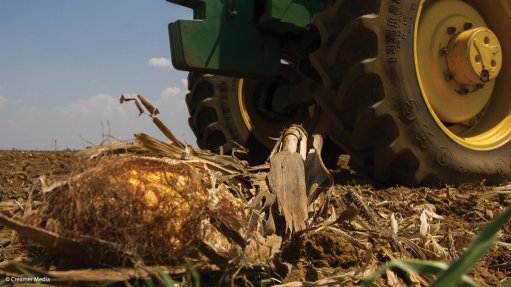
Photo by: Duane Daws
The ability of South Africa’s farmers to continue to produce at the levels needed to maintain national food security is under threat by further drought and consequential financial woes, which could have significant knock-on effects for the economy.
Agri SA president Johannes Möller warned on Tuesday that there was a high probability of a second consecutive year of drought across many regions in the country.
In drought-stricken regions, such as those in the North West, Free State and KwaZulu-Natal provinces, this threat was compounded as farmers were exposed to severe financial losses. As such, they had found it arduous to operate their businesses sustainably or meet their obligations to financial institutions, Agri SA advised in a statement.
These financial institutions could, in turn, limit production credit for the coming season. As such, farmers could face severe financial constraints as well as inadequate water resources in the season to come. Möller cautioned that, left unmitigated, these factors would result in lower crop production, labour shedding and rising food prices, as had been the case this year.
“This is a serious situation and we call for urgent interventions to lend assistance to affected farmers, both established and emerging,” he said.
Agri SA had been monitoring climatic developments closely and had already started to engage with financial institutions, agricultural industry representatives, government stakeholders and disaster risk specialists.
Möller added that through this process, Agri SA aimed to reach a solution that would enable the continuation of a vibrant agricultural sector. “While we acknowledge current fiscal constraints, we urge government to prioritise disaster relief to agriculture as a mechanism of enhancing food security and promoting prosperous rural economies,” he stressed